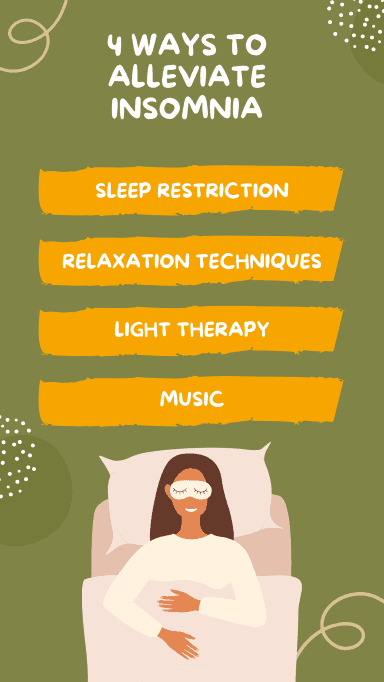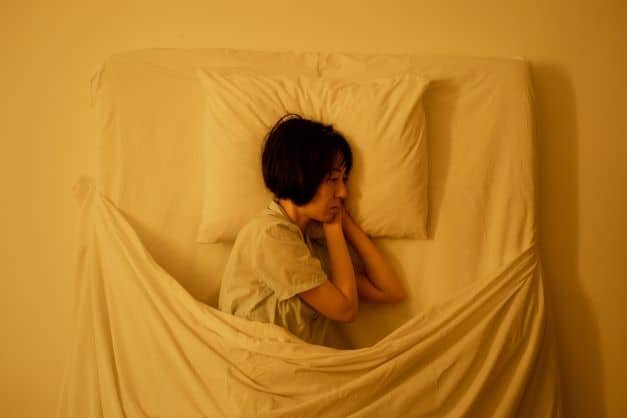What happens if you sleep while listening to music?
Ahh, sleep is a beautiful thing, but do we need it? Yes, we do; it allows our minds and bodies to recharge and energize us for the coming day ahead. A healthy sleep pattern helps our bodies to stay healthy and keeps disease away, as, without enough sleep, our brain does not function properly. A regular night’s sleep should be between seven and nine hours a night to feel well-rested, although some people manage a little less. If you sleep for longer than nine hours regularly, there may be reasons, so it may be an idea to get medical advice.
A comfortable mattress is essential to a good night’s sleep; we all know this. But ensure your mattress beneficially supports you; it will pay dividends for your rest time and posture. Music is said to be the key to life, but is it the key to a restful night’s sleep? Most of us like our style of music, but what does it do to us when we are sleeping? Is it good or bad for us? This article will discuss the pros and cons of listening to music, both going to sleep and while you sleep.
It’s All About Rhythms
We listen to music for its rhythms and harmonies. It stirs something primaeval within us, the Rhythm of a heartbeat, the Rhythm of the seasons, the Rhythm of a rainstorm. But life also has its Rhythm, which dictates our sleep/wake cycle. The Circadian Rhythm. This is our body clock; it takes its environmental cues and releases hormones like Melatonin and Cortisol to either make us sleepy or alert.
The problem with the Circadian Rhythm is it’s quite a delicate system that is easily upset. It takes its cues mainly from light and dark; when the day begins tonight, it releases Melatonin, the hormone that makes us sleepy. And when morning comes, and the sunlight slants through the window, it begins to suppress the Melatonin and release Cortisol. This hormone is a stimulant and keeps us alert throughout the day.
They say music soothes the soul; it may be more accurate to say it helps the Circadian Rhythm. Recent research has shown that music benefits many areas of life, including concentration levels, memory retention, depression, and sleep.
However, that doesn’t mean that blasting out death metal music at full volume will be conducive to a good night’s sleep. The Rhythm of life is gentle; the Rhythm of the music you choose to sleep in should work in harmony with this.
When did it all start
We all remember those nursery rhymes from childhood and know the lullabies by heart. As parents, we know singing to our babies works well for them; they doze off comfortably in our arms. Singing to your babe has been proven scientifically to work.
Lullabies stimulate baby development through voice recognition, aiding communication learning. It helps develop their cognitive thought pattern and also their language. It encourages that emotional bond between you and will last a lifetime. Soothing and relaxing music creates a calm atmosphere for babies to learn a good sleep pattern. It has been found that low-volume background music improves children’s sleep quality as they age. Classical relaxing music effectively reduces sleeping issues and problems, so over time, we have come to know and understand that some melodies are good for us. A good sleep-inducing environment is advantageous, as is a regular bedtime routine.
Good habits formed at this point can help long into adulthood and alleviate sleep problems that can profoundly impact life quality.
Sleep problems
As adults, we have all had periods where we have suffered from poor sleep. It may be due to stress, anxiety, work worries, or trauma; there are many reasons. These issues will all cause poor sleep routines, impacting our daily lives, be it our ability to concentrate, lack of energy and even our decision-making capabilities.
Environmental circumstances like lighting or noise can play havoc with our ability to relax. The temperature can play a keen role in our disorderly sleep patterns, subsequently impacting our overall well-being. So, it would be best to look for soft lighting, low noise and a cool room to ensure a great night’s slumber. These are the triggers that help keep your Circadian Rhythm working correctly. Insomnia comes in many different forms, and finding the right cure is what you seek. The common causes of insomnia are irregular sleep schedules and poor sleeping patterns.
Depression and anxiety, physical pain and neurological issues are reasons for insomnia.
4 ways to alleviate insomnia:
- Sleep Restriction – By restricting the amount of sleep you usually take, you can build a regular sleep pattern more in tune with nature’s intended, cut out the daytime naps and rise earlier in the morning.
- Relaxation Techniques – Techniques like progressive muscle relaxation can significantly aid your quest for a good night’s sleep.
- Light Therapy – Light is the main trigger for your Circadian Rhythm; ensure you get plenty of light during the day and reduce it in the evening. There are also lights explicitly designed to simulate daylight; in extreme circumstances, contact a health professional who will advise on the proper equipment and how to maximize using them.
- Music – Music is increasingly being used as sleep therapy.

Holistic healing music
Music is a powerful tool; it can energize or relax, make us dance or doze off! Relaxing music at a low volume can lower the heart rate and blood pressure when sleeping. It may quieten the nervous system and ease muscle stress, encouraging slower breathing. It reduces stress and lessens our anxiety, even when we sleep. Music has been used for many years in holistic healing; the benefits of a good night’s sleep and renewed energy the next day are good in anyone’s world.
An online search for the advantages of holistic music therapy is just a search engine away for you. Read up on it to see if you think the benefits outweigh the negatives for your sleep issues.
The benefits of listening to music while we sleep
Listening to your favourite tunes before bedtime will improve the quality of your sleep. It may be that music has a positive effect on your sleep, as you tend to spend less time waiting for sleep to come, you know what it is like to count those sheep! You can sleep longer and get a better night’s rest as the music takes you to different places in your head; it also takes your mind off daily stresses.
The music you decide to listen to before going to sleep is essential. You may wish to listen to soothing shore sounds, crashing waves, or plain relaxing mood music to help you drift off. A good tempo per minute should be between sixty to eighty beats per minute, as this tends to calm you; therefore, that perfect slumber is coming your way! Look at the search engine on your computer for great tips for relaxing music themes. You are more likely to dream if you listen to music while you sleep. Dreaming is a normal part of most people’s healthy sleep. Having a dream when you sleep is good for our emotional health and cognitive function. It can be advantageous to our memory, emotional processing and practical thinking.
It shouldn’t be thought of just as a method of improving the quality of your sleep because what it is, is a way of increasing the quality of your whole life.
Factors to be aware of
Turn that volume down! Loud music is not a good idea while attempting to get to sleep. It tends to energize and wake you up, which has the opposite effect of what you are hoping for. Things in our external environment can affect our dreams, music being one of them—another reason to avoid loud and fast-beating music before bedtime. A part of our brain manages interaction, and while this area of our brain is unconscious when we sleep, it doesn’t get the required rest. This can cause waking bouts or disturbed periods of sleep, thus not allowing us those eight hours of good rest that our bodies need.
Listening to loud music is not necessarily harmful but should be avoided before sleeping and while you slumber. Wearing earplugs when listening to relaxing music to go to sleep can damage cells in the ear, but you can buy pillow speakers that will take that concern away. Earplugs also cause a build-up of earwax, which, while not dangerous, is unsuitable for you in the long run.
Mobile phones are an integral part of our lives nowadays, often an extension of our bodies. We go everywhere with them, including the bed. The light emitted by your mobile phone inhibits the production of melatonin. Melatonin is a hormone made by a gland in your brain; it assists your body in knowing when it is time to wake up and, of course, go to sleep. So, put that mobile phone away from you, and perhaps listen to some tunes on the radio at a low volume, as this won’t disturb or interrupt your natural sleep pattern.
Bad habits before bed
Things that should be avoided before bedtime are eating too close to bedtime, having too warm a room to sleep in and avoiding nicotine and caffeine late at night. Lessen the use of technology before and at bedtime, and do not be tempted to take that laptop to bed with you! We know that habits can be changed, and altering your evening routine will have many benefits of a better night’s sleep.
If it works for you, do it
We are all individuals; what works for one person may not work for you—experiment with different types of music; some people like more volume than others (within reason). Your Circadian Rhythm is personal to you and can react to different stimuli in unique ways, meaning one person sleeps to Mozart while another sleeps to dulcet tones of some gentle rock music. It may take some time to fine-tune, but sleep is just a rhythm away.
Sleep still isn’t fully understood despite the massive amount of research. However, there is a consensus that music can play a large part in ensuring a good night’s sleep, mainly when used with the other techniques we discussed. This sleep technique doesn’t involve equipment or radical lifestyle changes; you can start tonight.



